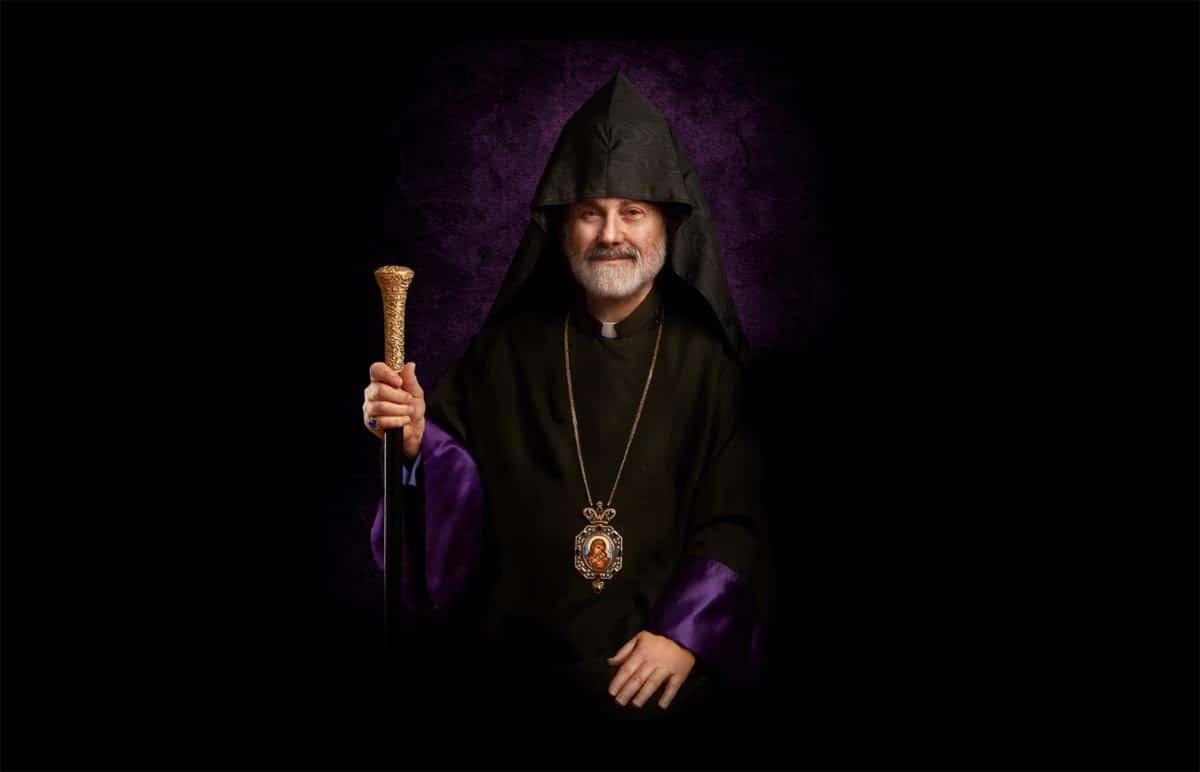The Prelate’s Sermon
(Sunday, July 24)
Today the Armenian Church celebrates the Feast of the Transfiguration of our Lord Jesus Christ, which is the third major feast after the Theophany and Resurrection of the incarnate Savior the Only Begotten Son of God. The Gospel reading for the feast is Matthew 16:13 – 17:13.
I would like to share a few thoughts inspired from this passage that describes the brilliant transfiguration, which by tradition took place on Mount Tabor.
- It is true that during the wedding reception in Cana of Galilee, Saint John tells us that Jesus revealed His Divine glory (Jn 2:11), yet the glory which the three Apostles, Peter, James and John witnessed here on the mountain surpasses all the signs and miracles they witnessed during their lifetime. Saint John summarizes the great mystery by saying that “the tabernacle of God is with men, and He will dwell with them, and they shall be His people, and God Himself shall be with them, and be their God” (Rev 21:3).
- The curtain of mystery concerning the things to follow, the so-called death, which actually is uninterrupted continuity of our soul without the flesh, was completely unveiled, and the Apostles with their naked eyes enjoyed the vision of the marvelous things yet to come.
- The appearance of Moses and Elijah, the two great prophets in the Old Testament, dispelled all the doubts and uncertainties related to our existence as individuals in the heavenly realm, known as the Kingdom of Heaven. There is a trend of creating a compromise between religion and science and to define the soul as energy. While the soul contains dynamic energy, it is not similar to the energy understood in science. The soul carries the characteristics of the glorified body as defined by Saint Paul (Phil 3:20-21).
- The testimony of the Evangelist Matthew that both the prophets were in conversation with our Lord provides us with solid assurance that indeed the souls, the “energies,” are in live interaction through conversation that assumes rational characteristics.
- Saint Peter’s spontaneous affirmation, “Lord, it is good for us to be here; if you wish, we will make three tabernacles: one for you, one for Moses and one for Elijah”, indeed sounds childish yet it is very genuine and mirrors one of the most authentic feelings of human beings experiencing an overwhelming moment.
But first let us reflect on the word “tabernacle,” which in Armenian is “daghavar”. This word in the Old Testament is of great importance and reverence. It denotes the portable sanctuary (akin to a large tent) first used by Moses and the children of Israel after they escaped out of Egypt but had not yet settled in the Promised Land. The Ark of the Covenant, which contained the Laws given by God, was protected within the “daghavar,” or tabernacle, and even after the Temple was built in Jerusalem, the Feast of the Tabernacles (as the tent-booths are known in English) became a fixed celebration in Judaism. In the prophecy of Zechariah (14:16-19), we learn that if the faithful forget to celebrate the “daghavar”, the feast of the tabernacles, then the Lord God will stop the rain. It is for this reason that after the Armenians celebrate the great “daghavar” of the Transfiguration, when the Giver of the Law and the Perfecter of the Prophets Jesus Christ (Matt 5:17) is witnessed speaking with Moses the law-giver and Elijah the prophet, we sprinkle ourselves with water to affirm the rain promised by the Lord to all who worship Him in spirit and in truth (John 4:23).
The genuine exclamation of Saint Peter, “Lord, it is good for us to be here”, indeed reflects our natural response while enjoying exceptional joy. We learn this from our own children. When they are in good company, they dearly urge their parents and ask them, “Dad, Mom, let us stay here longer.”
Indeed, it is an incomparable privilege to be in the presence of God when our entire existence blossoms with peace, comfort and joy. Therefore, let us make our hearts the “daghavar”, the Tabernacle of the All-Holy Trinity to enjoy the heavenly bliss forever and gratefully praise the Almighty. Amen.

